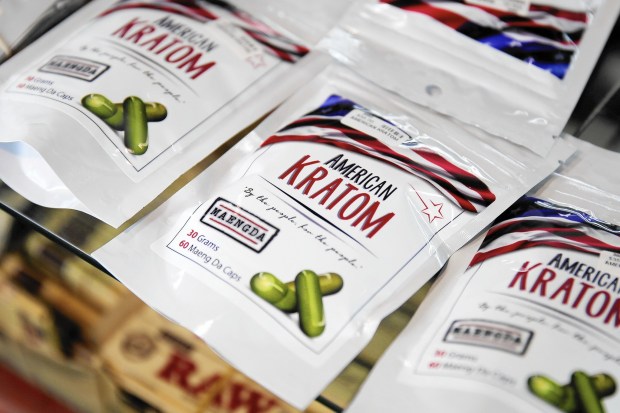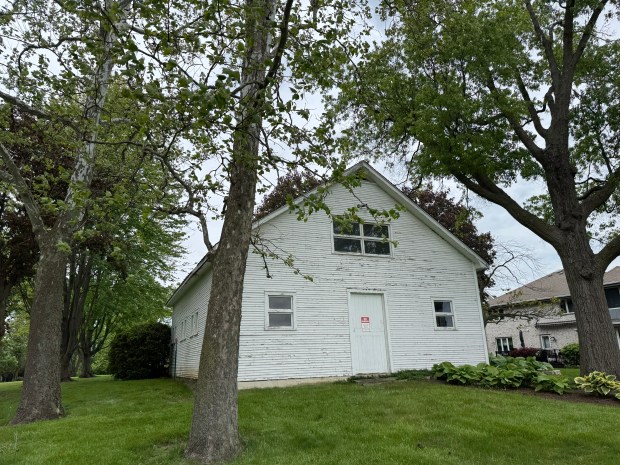Tinley Park passed an ordinance Tuesday to prohibit the sale, distribution and use of kratom, prompting objections from businesses and advocates, but granted a 12-month amnesty period for businesses primarily profiting from kratom sales, and a six-month period for those selling it as an accessory.
The ordinance when fully implemented would ban all novel synthetic and psychoactive drug products.
Kratom is an herbal substance from Southeast Asia commonly used for pain relief, mood enhancement and withdrawal symptoms.
The ordinance prohibits the sale of psychoactive substances but does not restrict their possession. The board tabled discussion in May after being presented with a petition opposing the new regulations.
Several Tinley Park business owners advocated for regulations that protect consumers while preserving their ability to sell the substance.
Jessica Hamouri, owner of Smokey Top, a vape and tobacco shop in Tinley Park, said the ban would cause her to lose 40% of her business.
Hamouri said her shop barely survived the pandemic, and now she fears for her store’s future.
“If this ban goes through, it’s significantly going to hurt all of our businesses,” Hamouri said.
Charles Wu, CEO of Chi’tiva stores that sell Delta-8 and member of the Illinois Hemp Business Association, said he attended the meeting to advocate against the inclusion of generic language.
“Although the ban is against Kratom, we are concerned that the ordinance, as written,
contains overly broad language that might affect a wide range of consumer products available in Tinley Park including certain types of CBD, delta hemp products, cough syrups, pain killers, energy drinks that all incorporate varying levels of synthesis as part of the manufacturing process,” Wu said.
Wu advocated for strict regulations on the hemp industry that do not ban the sale of all psychoactive or synthetic drug products.
“This must be done right without favoring corporate monopolies or starting a new war on drugs that targets small businesses and minorities in Illinois,” Wu said. “We do not support a ban on the industry.”
Village Board members said residents’ safety is their top priority.
John Shinholser, a recovered addict since 1982, who founded the McShin Foundation, dedicated to aiding individuals in addiction recovery, told Tinley Park officials about kratom’s role as a tool in addiction recovery.
“You don’t realize the damage you’re going to do,” Shinholser said. “Kratom is a gateway drug into recovery for tens of thousands of people right now.”
One Tinley Park resident shared a photograph of her 22-year-old son who she said died from a seizure induced by kratom.
Village Board members agreed more guidance is needed from state lawmakers before regulatory legislation can be passed at the municipal level.
“It’s unfair to put this on a local municipality,” village Clerk Nancy O’Connor said.
The Orland Park Village Board passed a similar ordinance in May, banning kratom, tianeptine, Delta-8, and other novel synthetic and psychoactive drug products.
About 2 million Americans used kratom in 2021, according to the FDA.
Advocates say the substance could reduce dependence on highly addictive painkillers, offering a potential alternative for medication-assisted therapy in treating opioid addiction. However, in recent years, lawmakers have been passing regulations due to growing concerns that the unregulated plant product could be abused for its mild euphoric qualities.
Kratom does not have any uses approved by the Food and Drug Administration. In 2018, the FDA found high levels of heavy metals, including nickel and lead, in some kratom products. That same year, a salmonella outbreak, affecting 41 states including Illinois, was linked to kratom.
As of February, 22 states and the District of Columbia regulate kratom, according to the Legislative Analysis and Public Policy Association.
A bill in Springfield proposes the Kratom Consumer Protection Act, which aims to establish safety regulations for the sale and use of kratom products.
Several proponents regulations over a ban referenced this proposed legislation, Tinley Park Mayor Michael Glotz said the board must make its decision based on the information available, rather than legislation that has not yet left the House.
Glotz said he invites continued discussions about kratom regulations once either federal or state guidelines are made available to municipalities.
“The door is not closed. We have to take an action,” Glotz said.





